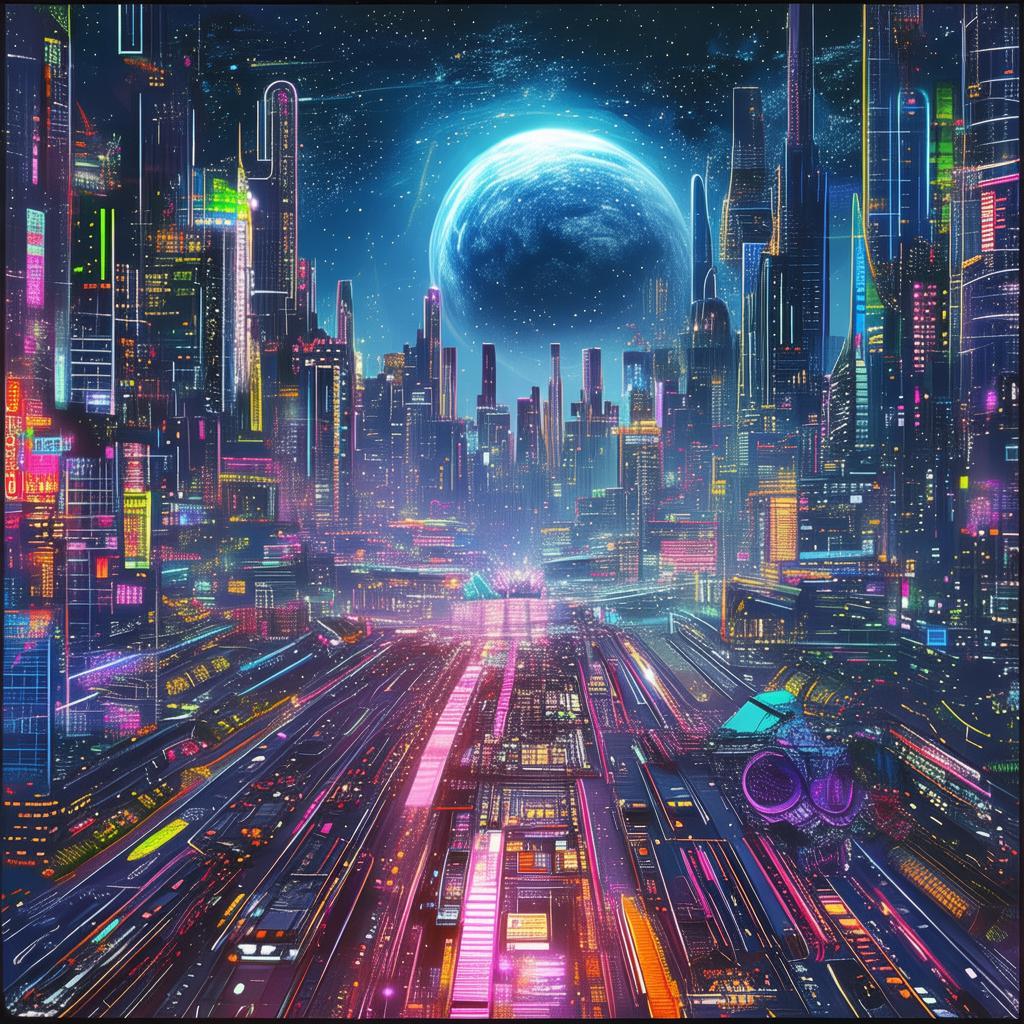The Last Symphony of Time
In the year 2147, the world had been reshaped by the Great War, a conflict that had almost ended humanity. The remnants of society clung to life in a network of underground cities, their existence maintained by a strict hierarchy and a single, all-consuming law: time travel was forbidden. The government, a shadowy entity known as The Council, had deemed that the ability to travel through time was too dangerous and unpredictable to be allowed.
Amara had always been an outcast, her soul a canvas painted with the vibrant melodies of classical music. Her father, a former musician, had been a time traveler before the Great War, and Amara had inherited his passion for music, even though it was a crime to practice in the eyes of The Council. She was part of a clandestine group of musicians, the Last Symphony, who performed their music in secret, knowing that each note was a defiance of the oppressive regime.
The Last Symphony had always been careful, their performances meticulously planned to avoid detection. But this time, the stakes were higher than ever. The Council had begun to suspect the existence of the group, and its leader, Elara, had become obsessed with uncovering their location. Elara was not just a member of The Council but also Amara's past love, a love that had been forbidden by the law that had reshaped the world.
Amara's life had always been a series of choices, each with a cost. She had chosen her music over a stable life, over love, over her own safety. Now, she faced the ultimate choice: save her past love or secure her future in a society where her art was forbidden.
The night of the performance was as dangerous as it was exhilarating. The Last Symphony had planned it meticulously, their music a blend of hope and defiance. As they played, Amara's mind raced. She had heard whispers of a time travel device, a machine that could take them back to the pre-war era, before the Great War, before The Council. If she could use it, she might be able to free her father and herself from the constraints of their dystopian society.
Elara's eyes were like twin fires as she watched the performance. She had been torn between her love for Amara and her duty to The Council. Now, as the music reached its climax, she made her move. She whispered to Amara, "I have a plan. But it means losing you, or losing everything."
Amara's heart was a storm of emotions. She loved Elara, but she also loved music. She loved the idea of a world where her art was free. The choice was clear, but the cost was high.
In the aftermath of the performance, Amara and Elara met in secret. Elara showed her the time travel device, a marvel of ancient technology that had been hidden away in a secret location. "If we use it, we can go back to the pre-war era and expose The Council. We can change the past and save our future," Elara explained.
Amara knew the risks were immense. Time travel was unpredictable, and there was no guarantee that they would return. But she also knew that she could not live without her art, and she could not live without Elara.
As they activated the device, the world around them blurred and twisted. They were traveling back in time, into a world they had only heard of in whispers. They emerged in a forest, the sky painted with the colors of the dawn.
Amara and Elara began their mission, exposing The Council's secrets and fighting to bring down the oppressive regime. They faced obstacles at every turn, but their love and their passion for music kept them going.
In the end, they succeeded. The Council was overthrown, and humanity was free. Amara and Elara were together once more, their love unbroken by the passage of time.

But as they celebrated their victory, Amara realized that she had changed. She had become someone else, someone who could not live without the power of music and the love of another. She looked at Elara and said, "We have won, but at what cost? We are not the same people we were before."
Elara smiled and took Amara's hand. "But we are the same people who love, who fight, and who create. And that is what makes us truly free."
The Last Symphony had played their final concert, but their music had echoed through time, a testament to the power of love and the resilience of the human spirit.
✨ Original Statement ✨
All articles published on this website (including but not limited to text, images, videos, and other content) are original or authorized for reposting and are protected by relevant laws. Without the explicit written permission of this website, no individual or organization may copy, modify, repost, or use the content for commercial purposes.
If you need to quote or cooperate, please contact this site for authorization. We reserve the right to pursue legal responsibility for any unauthorized use.
Hereby declared.









